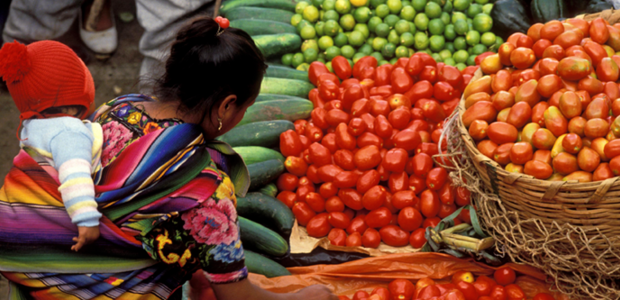Working Paper
The long(er)-term impacts of Chile Solidario on human capital and labour income
This paper examines Chile Solidario, a social protection programme that provides poor households in Chile with preferential access to a conditional cash transfer programme designed to facilitate investments in children’s health and education. We...
Blog
SOUTHMOD family extended: Welcome to the three new Latin American teams
How would progressive income taxation affect income inequality in Bolivia? What are the costs and benefits of implementing a state pension in Colombia...
Working Paper
Inequality of opportunity and intergenerational persistence in Latin America
How strong is the transmission of socio-economic status across generations in Latin America? To answer this question, we first review the empirical literature on intergenerational mobility and inequality of opportunity for the region, summarizing...
Journal Article
Does connectivity reduce gender gaps in off-farm employment?
Gender gaps in labor force participation in developing countries persist despite income growth or structural change. We assess this persistence across economic geographies within countries, focusing on youth employment in off-farm wage jobs. We...
Working Paper
A macro–micro analysis of gender segregation and job quality in Latin America
Latin America has seen vast improvements in gender educational and health equality. Favourable supply-side conditions, however, have not translated into greater gender economic equality, a process that also depends on structural economic change and...
Working Paper
No taxation without informational foundation
This paper combines cross-national statistical analysis and in-depth historical case studies of Argentina and Chile to explore the relationship between two crucial dimensions of state capacity.We show that information capacity contributes to the...
Report
Nicaragua: desk study on aid and democracy
This study is part of a series of ten country-focused desk studies on aid and democracy prepared under the project The state and statebuilding in the Global South. They are prepared under the guidance of Rachel M. Gisselquist as background to a...
Working Paper
The political economy of ‘linked’ progressive taxation in Africa and Latin America
One key element in the reduction of poverty and (in Latin America) inequality has been the achievement of greater fiscal equity; we analyse one key part of this process, which is the earmarking of portions of tax revenue to be spent on progressive...
Blog
The case for universal social insurance in Latin America

by
Santiago Levy
November 2019
Access to effective social insurance in Latin America is typically determined by workers’ status in the labor market – whether they have formal or...
Working Paper
Self-employment and labour market dynamics of men and women in El Salvador and Nicaragua
We study the labour market dynamics of men and women in El Salvador and Nicaragua, focusing on the factors that help men and women move into an advantageous labour market state from an unfavourable state. We consider ‘advantageous’ states to be...
Working Paper
Cash transfers in Latin America
In this paper, we present comparative evidence for eight Latin American countries regarding design and effects of cash transfers (CTs). On the basis of household survey data, we analyse their coverage, importance in household income, and effects on...

 Join the network
Join the network







